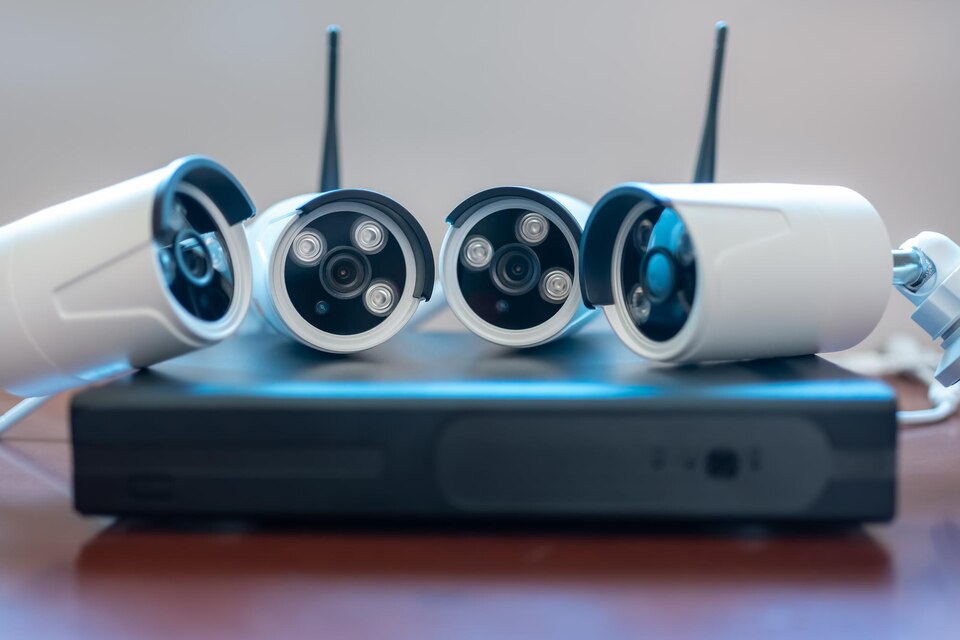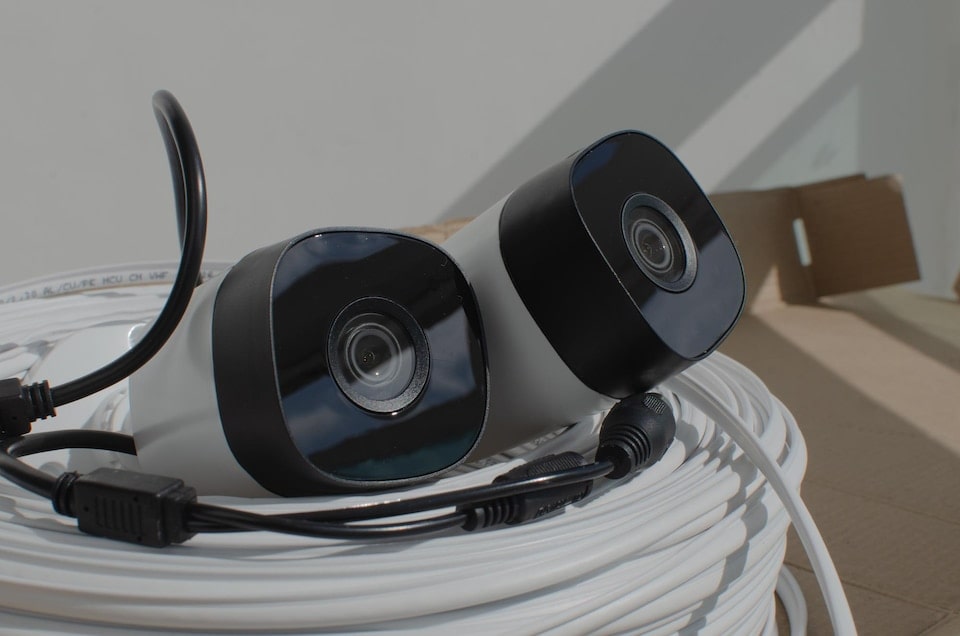The Pros and Cons of Wireless vs Wired CCTV Systems
When it comes to protecting your home or business, choosing the right CCTV (Closed-Circuit Television)
system is crucial. One of the key decisions you'll need to make is whether to opt for a wired or wireless
CCTV system. Both types have their advantages and disadvantages, depending on your needs, budget, and
installation preferences. In this blog, we'll break down the pros and cons of wireless and wired CCTV
systems to help you make an informed decision.
Wired CCTV Systems
A wired CCTV system uses cables to connect the cameras to a recording device, like a Digital Video
Recorder (DVR) or Network Video Recorder (NVR). These systems have been around for many years and are
still widely used.
Pros of Wired CCTV Systems
- Reliable Connection Wired CCTV systems provide a strong, stable
connection between the cameras and the recording device. The footage is transmitted directly through
cables, which means there are fewer chances of signal interference or interruptions. This reliability
makes wired systems ideal for large properties or areas with thick walls.
- High-Quality Video Since wired systems are less likely to
experience signal loss or lag, they generally offer higher video quality, especially for HD or 4K
footage. This ensures you get clear, sharp images, which are vital for security monitoring.
- No Dependence on Wi-Fi Unlike wireless systems, wired CCTV
cameras do not rely on your Wi-Fi network. This is beneficial if you have an unreliable internet
connection or a large property where Wi-Fi signals may be weak.
- More Secure Wired systems are often more secure than wireless
ones because they aren't as vulnerable to hacking. Since the footage is transmitted through cables,
there’s less risk of unauthorized access or interference.
Knowing where you need coverage and how many cameras you need will help you narrow down your options.
Cons of Wired CCTV Systems
- Complicated Installation Wired CCTV systems require professional
installation, especially if you're covering a large area. The process involves running cables through
walls, ceilings, or underground, which can be time-consuming and costly.
- Limited Flexibility Once installed, it can be difficult to move
or add additional cameras to a wired system. If you need to expand your coverage, you may need to
rewire parts of the system, which can be expensive and inconvenient.
- Aesthetic Concerns The visible cables can detract from the
aesthetics of your home or business. If you're concerned about the appearance of your property, wired
systems might not be the best option, as the cables need to be concealed, which may not always be
possible.
Consider the area you need to monitor and choose the camera type that works best for that environment.
Wireless CCTV Systems
A wireless CCTV system uses Wi-Fi or a cellular network to transmit footage to a cloud storage or a
recording device. These systems are becoming increasingly popular due to their flexibility and ease of
installation.
Pros of Wireless CCTV Systems
- Easy Installation One of the main benefits of wireless CCTV
systems is their easy installation. Since they don’t require cables, you can quickly set up the
cameras and place them almost anywhere. You can even move them around if needed, without the hassle of
rewiring.
- Flexibility and Scalability Wireless systems allow you to add or
move cameras with ease. This makes them a great choice if you want to expand your coverage over time.
Whether you're securing a small home or a large office, you can easily adjust the system to suit your
changing needs.
- Better Aesthetic Appeal Without the need for visible wires,
wireless CCTV cameras are generally more discreet and less invasive. This makes them a good choice for
those who want to maintain the appearance of their property while still ensuring security.
- Remote Viewing Most wireless CCTV systems allow for remote
viewing, which means you can monitor your property from anywhere using your smartphone, tablet, or
computer. This feature is especially useful for business owners or homeowners who travel frequently.
Cons of Wireless CCTV Systems
- Signal Interference Since wireless CCTV systems rely on Wi-Fi or
cellular networks, they can be prone to signal interference. Walls, furniture, and other obstacles can
block the Wi-Fi signal, resulting in lower-quality footage or missed recordings. To prevent this, you
might need to install signal boosters or invest in higher-end equipment.
- Dependence on Wi-Fi Wireless CCTV systems depend heavily on a
stable internet connection. If your Wi-Fi goes down or experiences disruptions, so does the system.
This can be a problem in areas with unreliable internet service.
- Security Concerns Wireless systems are more vulnerable to hacking
than wired systems. If your network is not properly secured, there’s a risk that unauthorized users
could gain access to your footage. It’s crucial to use strong passwords, encryption, and two-factor
authentication to protect your system.
- Battery Life Some wireless CCTV cameras run on batteries, which
need to be charged or replaced over time. While this can be convenient, it also means you’ll need to
maintain the system regularly to ensure it’s always operational. If the batteries run out, you risk
losing coverage.
Which One Should You Choose?
When deciding between a wired and wireless CCTV system, consider the following factors:
- Budget: Wired systems tend to be more expensive due to
installation costs, while wireless systems offer lower installation costs but may require additional
equipment like Wi-Fi extenders.
- Property Size: For larger properties, a wired system might be
more reliable and less prone to signal issues. Smaller properties can benefit from the flexibility and
ease of installation offered by wireless systems.
- Security Needs: If security is your top priority, a wired system
is often more secure. Wireless systems are more vulnerable to hacking and interference, but with
proper encryption and strong passwords, you can still ensure a high level of security.
Conclusion
Both wired and wireless CCTV systems have their pros and cons, so the best choice depends on your
specific needs. Whether you prefer the reliability and high-quality video of wired systems or the
flexibility and ease of installation of wireless systems, there’s an option that’s right for your home or
business.


